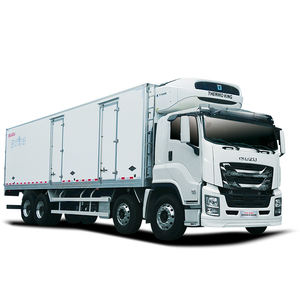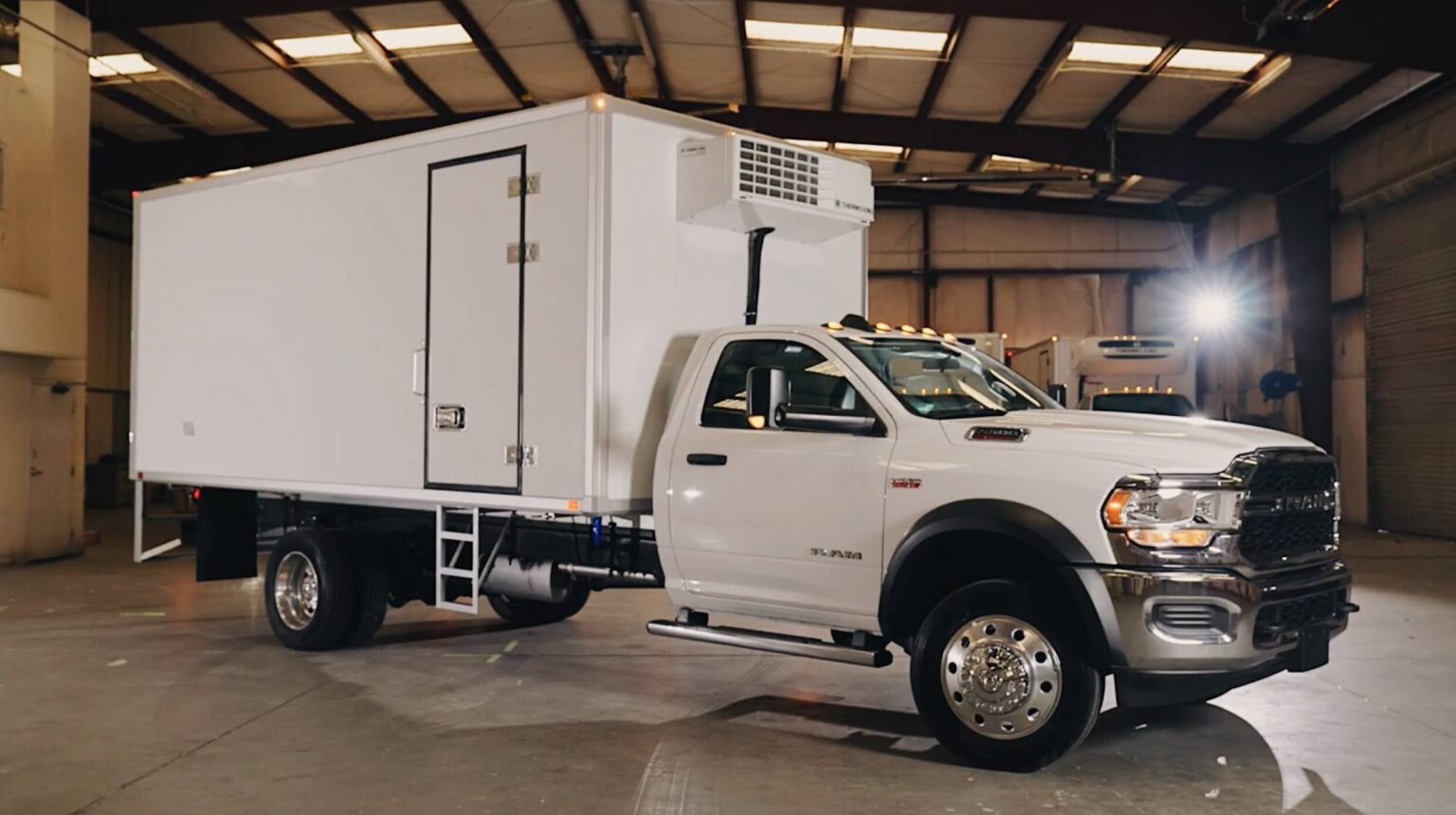Reefer Trucks Thermo King: Trusted for Temperature-Sensitive Goods
Reefer Trucks Thermo King: Trusted for Temperature-Sensitive Goods
Blog Article
Picking the Right Transport Refrigeration System for Your Fleet
Picking an ideal transportation refrigeration system for your fleet is an essential choice that can considerably affect operational efficiency and item honesty. It demands a detailed understanding of your certain refrigeration requirements, including temperature level demands and shipment schedules.
Comprehending Your Refrigeration Requirements
When picking a transportation refrigeration system, understanding your certain refrigeration requirements is vital to ensuring product quality and compliance with market requirements. Different aspects have to be thought about to figure out one of the most suitable system for your procedure. These include the kind of products being delivered, their temperature requirements, and the period of transportation.
For disposable goods, such as fresh fruit and vegetables or drugs, specific temperature level control is crucial. Comprehending the temperature variety needed for each and every product allows for the option of a system that can preserve those problems constantly. Furthermore, think about the regularity of distributions and the distance traveled; longer journeys may necessitate systems with boosted insulation or back-up power choices to protect against temperature level fluctuations.

Moreover, the capacity of the refrigeration device should straighten with your load size. By thoroughly assessing these variables, you can guarantee that your picked transport refrigeration system efficiently meets your functional demands and preserves item integrity.
Kinds of Transportation Refrigeration Systems
Choosing the right sort of transport refrigeration system is important for making sure the secure transit of temperature-sensitive items. There are numerous systems available, each made to fulfill details demands and applications.
These systems are commonly preferred for their performance and lower preliminary expenses. Another alternative is the main refrigeration system, which offers multiple areas or automobiles from a solitary compressor device.
Furthermore, there are self-supporting refrigeration units that integrate the compressor and evaporator in one bundle. These units are suitable for smaller sized lorries or when area is restricted. For specialized applications, such as carrying perishables or pharmaceuticals, cryogenic refrigeration systems may be used, utilizing liquid nitrogen or co2 to keep ultra-low temperature levels.
Last but not least, crossbreed refrigeration systems that integrate electric and diesel power are coming to be significantly preferred, providing versatility in power use and reducing environmental influence. Recognizing these numerous types permits fleet drivers to make informed choices tailored to their specific operational needs.
Trick Features to Take Into Consideration
How can one guarantee that a transportation refrigeration system fulfills all operational requirements? To accomplish this, several crucial features must be thoroughly reviewed. First of all, temperature level control is crucial; systems need to offer precise temperature setups to suit various products, varying from frozen products to perishable items.
Power efficiency is an additional vital consideration, as it influences functional costs. Look for systems that make use of innovative technology, such as variable speed compressors, to maximize power usage without endangering efficiency.
Another function to assess is the reliability and toughness of the tools. Equipments built from top quality materials and created for durability against harsh problems will minimize maintenance expenses and downtime.
Furthermore, the simplicity of maintenance and accessibility of parts can dramatically affect functional performance (thermo king truck refrigeration units). Attributes like modular styles or remote monitoring capacities can improve service procedures
Last but not least, compatibility with existing fleet administration software can improve tracking and reporting processes. By concentrating on these vital features, fleet operators can ensure that their transportation refrigeration systems not only satisfy present demands however additionally adjust to future needs.

Budgeting for Refrigeration Solutions
Evaluating key functions of transport refrigeration systems is only one part of making certain operational performance; budgeting for refrigeration options is just as essential. A well-structured budget not just includes the first acquisition rate but also thinks about lasting operational prices, including power intake, upkeep, and prospective fixing demands.
When developing a budget plan, fleet managers need to initially analyze the total expense of ownership (TCO) This consists of not only the acquisition expenses but likewise ongoing costs connected to fuel efficiency and the resilience of the refrigeration units. Selecting systems with greater power performance rankings may produce significant financial savings over time, minimizing in advance costs.
Additionally, fleet drivers ought to make up possible scalability. As services grow, the refrigeration requires may alter, requiring upgrades or extra devices. Preparation for these future expenses can protect against financial stress.
Funding choices can additionally play a crucial role in budgeting. Leasing, financings, or outright purchases each have distinctive financial implications, and comprehending these can assist in making an educated choice. Ultimately, a comprehensive budget plan that considers both future and instant needs makes certain that transportation refrigeration systems contribute favorably to the total operational effectiveness of the fleet.
Maintenance and Support Choices
In the world of transportation refrigeration systems, effective maintenance and support options are vital for making certain optimum efficiency and longevity. Normal maintenance is important to stop malfunctions and preserve the stability of temperature-sensitive freight. It is a good idea to develop a regular assessment routine with qualified service technicians that can execute essential checks and fixings on refrigeration devices.
Assistance choices must include a robust service agreement, covering both regular upkeep and emergency situation repairs. This guarantees that your fleet has access to prompt assistance, webpage minimizing downtime and keeping functional effectiveness. Numerous producers offer thorough assistance bundles that include training for your staff, enabling them to execute fundamental troubleshooting and maintenance jobs.
In addition, making use of remote tracking technology can boost your upkeep technique - thermo king truck refrigeration units. These systems provide real-time information on temperature level and performance, enabling aggressive actions before issues site link intensify. Purchasing training and modern technology not only boosts your fleet's integrity but likewise extends the life-span of your refrigeration systems
Eventually, a strategic technique to maintenance and support will certainly protect your financial investment and make sure that your transportation refrigeration systems operate at peak performance, delivering constant results for your company.

Verdict
To conclude, choosing the ideal transport refrigeration system for a fleet requires an extensive analysis of specific refrigeration demands, system kinds, and crucial attributes. Focusing on operational efficiency, power intake, and upkeep considerations is essential for making sure reliability. Furthermore, mindful budgeting and preparation for future scalability will add to the lasting success of the refrigeration method. Eventually, a well-informed choice will certainly improve item honesty and enhance general logistics operations within the fleet.
Choosing an appropriate transportation refrigeration system for your fleet is a vital decision that can substantially impact functional efficiency and item integrity.When picking a transport refrigeration system, recognizing your particular refrigeration demands is critical to making certain product top quality and compliance with market criteria. By Continued thoroughly analyzing these factors, you can make sure that your picked transport refrigeration system efficiently fulfills your operational requirements and keeps item integrity.
Eventually, a thorough budget that thinks about both future and immediate needs makes sure that transportation refrigeration systems add positively to the general operational efficiency of the fleet.
In verdict, choosing the proper transport refrigeration system for a fleet requires a thorough assessment of certain refrigeration demands, system kinds, and essential features.
Report this page